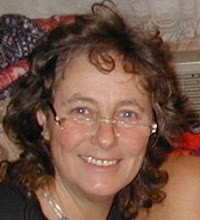The thing about voting in California is that your absentee ballot only gets counted if you submitted it well in advance of election day. Absentee ballots submitted on election day don't get accounted for until almost a month later. Since the polls in CA close 3 hours after those in the east, by 7pm on election day, Californians have a pretty good idea of how the rest of the nation voted. If it is close, you can vote for the lesser of 2 evils. In 2000, I voted for Gore instead of Nader at 7:45pm. If one candidate is distinctly ahead, you can vote for the best of the lot, because your vote becomes a statement at that point. In 2012 when Obama was far ahead of Romney, I proudly voted for Jill Stein.
The question is, if the race is close, do you vote for the best choice thereby possibly allowing the worst candidate to get elected like in 2000 when Nader got over 2% of the vote which supposedly stole the election from Gore. The fact is, Nader took the blame but Bush stole the election in a rigged system. The next question is, when the system is rigged, what difference does it make how we vote?
It was obvious to Gore in 2000, to Kerry in 2004, and to Sanders in 2016. The system is rigged and they ended up walking away rather than challenge a corrupt system. Bernie at least used his considerable influence, having nearly as many primary votes as Hillary, to squeeze a few progressive concessions into the Democratic platform. Bernie wants it to be the most progressive platform the Democrats have ever had, but he has overlooked the far more progressive 1912 Democratic platform listed below. Woodrow Wilson was the Democratic candidate and winner. Link to the actual text of the 1912 Democratic Platform
Curb corporate abuses with:
- Honest tariffs
- Regulation of Railroad rates
- Break up the monopolies with Anti-Trust laws
- Prohibit all corporate campaign contributions
- Regulate of Interstate Commerce
- Conserve of National Parks and wilderness lands free from corporate exploitation
- Nationalize of Alaskan coal before the giant monopolies take them
- Labor Rights
- Oppose the Federal Reserve but favor public banks
- Post Office Bank
- A Civil Service Law rather than the Spoils System of government positions
- Direct election of Senators
- Farm credit reform
- A Progressive income tax
- States Rights
- Presidential primaries in States
- Pure Food and Public Health
- Decrease poverty and the high cost of living with redistribution of wealth
- Control the Mississippi and use it to generate power
- Enforce the Monroe Doctrine with a strong navy
The fact is, that in 1912, everyone was so sick and tired of the giant corporations getting filthy rich at the expense of everyone else, destroying free trade and monopolizing the industries, that all 4 candidates in the election were Progressives. William Howard Taft, the incumbent, was in the Progressive wing of the Republican Party. Woodrow Wilson was in the Progressive wing of the Democratic Party. Former Republican Teddy Roosevelt split the Republican vote by starting a third party called the Progressive Party (aka Bull Moose Party). Eugene Debs was a Progressive Socialist, left of the other 3 Progressives. 1912 Election candidates in Wikipedia
Conditions a century ago sound a lot like now. Obviously, whatever the Progressive Reformers did to control corporate abuses a century ago didn't last. History repeats itself. But where are our Progressive reformers now, to break the stranglehold of the corporations?

No comments:
Post a Comment